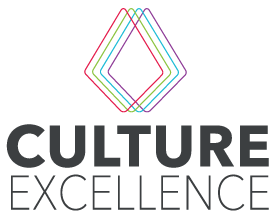Case Study: JW Marriott Marquis Dubai
At Culture Excellence we are very lucky to work with some of the biggest brands in the world, and one of these brands is a client which has been with us since our launch: the JW Marriott Marquis. The hotel is truly impressive to behold: standing 355 meters tall, it has more than 1600 rooms, a banquet hall, an auditorium, 18 Shops, 19 restaurants and a spa. It’s truly a enormous operation, that seems to always be busy.
Safety and quality culture
JW Marriott Marquis commitment to quality and safety culture is visible through all organisational layers, from senior managers to junior associates. The hotel has a very strong focus on food safety culture due to its origins in the food industry with senior management’s attitude being ‘Before we make good food – we have to make safe food’.
The JW Marriott Marquis originally did the assessment in 2015 and already in its first year the company achieved a very high result, reflecting its strong commitment to food safety culture. But what has been particularly interesting for us following the JW Marriot Marquis’s Culture Excellence journey, is how the company chose to interpret the data and instead of resting on their laurels, decided to take action to achieve even higher scores in the following years. Simply said, having the data has increased the company’s motivation to continuously improve. As put by their world-renowned Director of Culinary, Sebastian Nohse:
“I am a huge supporter of this program for the simple reason that it helps us drive awareness.”
Using the data
The company used the data in a very strategic way, identifying the areas where changes were needed and then implementing targeted strategies to help tackle them.
The Culture Excellence Assessment gives companies a large bank of useful data and an in-depth analysis of company culture. Companies then typically make a decision which areas to focus on. JW Marriott Marquis spent time examining how things like ‘length of service’ affected the results in relation to food safety, and where people perceived risk to be. Additionally, the company was very positive about how unbiased and clear the data was, making it easy to see where to focus their improvement efforts as well as how to present the data to senior management. The company also appreciated the fact that the assessment gives users an unfiltered view of what people really think and feel in the organisation.
Importantly – the company hasn’t forgotten to celebrate their strengths. Sometimes in business, we tend to focus solely on the problems. But positive reinforcement and acknowledgment of a job well done goes a long way in boosting morale and creating a work environment where employees are happy to come into every day. And there’s real business value in that - as author Simon Sinek once brilliantly put “Customers will never love a company, until the employees love it first”.


